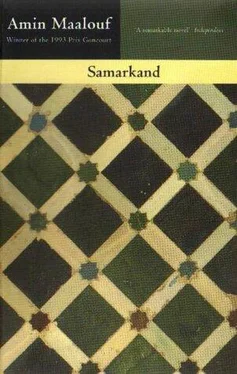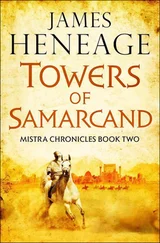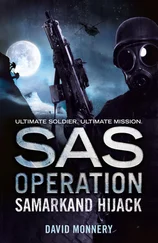‘I suppose that you have already spoken of this with Howard.’
‘A hundred times, and a hundred different ways. He invariably replies that the reawakening of the Orient is more important than the Mission’s fate and that if the constitutional revolution fails we will be obliged to leave in any case. Naturally I can always end his contract, but such an act will not be understood and will only arouse hostility amongst that section of the population which has always supported us. The only solution is for Baskerville to cool his ardour. Perhaps you can reason with him?’
While not formally agreeing to the undertaking, I asked to see Howard. A glimmer of triumph suddenly lit up the reverend’s ginger beard. He jumped up from his seat.
‘Follow me,’ he said. ‘I shall show you Baskerville. I believe I know where he is. Watch him in silence — you will understand my reasons and share my feelings of helplessness.’
We are the pawns, and Heaven is the player;
This is plain truth, and not a mode of speech.
We move about the chessboard of the world.
Then drop into the casket of the void.
OMAR KHAYYAM
In the ochre dusk of a walled garden there was a groaning crowd. How was I going to recognize Baskerville? Everyone’s face was so brown! I leant against a tree, waiting and watching. The doorway of a lighted cabin had been made into an improvised theatre. The rozeh-khawari , story-teller and mourner, was drawing out the tears of the faithful along with their shouts and their blood.
A man stepped out of the shadows, a volunteer for pain. His feet were bare, his torso naked and he had a chain wound around each hand: he threw the chains up in the air and let them fall behind his shoulders on to his back: the chains were smooth, bruising and pummelling his flesh but it did not give — it took thirty to fifty strokes for the first blood to appear as a black spot which then started pouring out in fascinating spurts. It was the theatre of suffering, the age-old game of the passion.
The beating became more vigorous as his noisy breathing was echoed by the crowd. The blows went on and the story-teller spoke louder to make his voice carry over the sound of the flagellation. Then an actor sprang up and threatened the audience with his sabre. His grimaces first attracted curses and then volleys of stones. He did not stay on the scene for long. Soon his victim appeared and the crowd gave out a roar. I myself could not hold back a shout, for the man dragging himself along the ground had been decapitated.
I turned horrified to the reverend; he reassured me with a cold smile and whispered:
‘It is an old trick. They get a child, or a very small man, and on his head they place a sheep’s head which is turned upside-down so that its bloody neck points upward. Then they wrap a white cloth around it with a hole in the appropriate place. As you can see the effect is transfixing.’
He drew on his pipe. The headless man hopped and wheeled around the stage for minutes on end, until he gave up his place to a strange person in tears.
‘Baskerville!’
I gave the reverend another questioning look. He did no more than raise his eyebrows enigmatically.
The strangest thing was that Howard was dressed as an American, even sporting a top hat which struck me as irresistibly amusing in spite of the pervading atmosphere of tragedy.
The crowd was still yelling, lamenting and, as far as I could see, no one else’s face showed the least hint of amusement except the pastor’s. Finally he deigned to enlighten me:
‘There is always a European in these funeral rites, and curiously, he is one of the “goodies”. Tradition has it that a Frankish ambassador at the Omayyad court was moved by the death of Hussein, the supreme martyr of the Shiites, and that he showed his disapproval of the crime so noisily that he himself was put to death. Naturally, there is not always a European to hand who can appear in the spectacle, so they use a Turk or a light-skinned Persian. However since Baskerville has been at Tabriz they always call upon him to play this role. He plays it splendidly — and he really cries!’
At that moment the man with the sword came back and pranced boisterously around Baskerville who stood still and then flicked his hat off, revealing his blond hair which was carefully parted to the left. Then, with the slowness of a zombie he fell to his knees and stretched out on the ground. A beam of light lit up his clean-shaven child’s face and his cheekbones which were puffed up with tears, and a nearby hand threw a cluster of petals on to his black suit.
I could not hear the crowd any longer. My eyes were riveted to my friend and I was waiting anxiously for him to get up again. The ceremony seemed to go on for ever and I was impatient to retrieve him.
An hour later we met around bowl of pomegranate soup at the mission. The pastor left us alone and we ate amid an embarrassed silence. Baskerville’s eyes were still red.
‘It takes me a while to become a Westerner again,’ he apologized with a broken smile.
‘Take your time, the century has just begun.’
He coughed, brought the hot bowl to his lips and became lost again in silent thought.
Then haltingly he said:
‘When I arrived in this country, I could not understand how grown and bearded men could sob and work themselves up over a murder committed twelve hundred years ago. Now I have understood. If the Persians live in the past it is because the past is their homeland and the present is a foreign country where nothing belongs to them. Everything which is a symbol of modern life and greater freedom for us, for them is a symbol of foreign domination: the roads — Russia; the railways, telegraph and banking system — England; the postal service — Austria-Hungary …’
‘And the teaching of science, that’s Mr Baskerville from the American Presbyterian Mission.’
‘Exactly. What choice do the people of Tabriz have? To send their children to a traditional school where they learn by rote the same misshapen phrases that their ancestors were repeating back in the twelfth century; or to send them to my class where they receive an education which is the same as that of young Americans, but in the shadow of a cross and a star-spangled banner? My students will be the better, the more adept and the more useful for their country, but how can we prevent the others from seeing them as renegades? In the very first week of my stay I asked myself that question, and it was during a ceremony like the one you have just been watching that I found the solution.
‘I had mingled with the crowd and groans were being emitted all around me. Watching those devastated faces, bathed in tears, and gazing at those haggard, worried and entreating eyes, the whole misery of Persia appeared to me — they were tattered souls besieged by never-ending mourning. Without realizing it, my tears started to flow. Someone in the crowd noticed, they looked at me and were moved and then they pushed me toward the stage where they made me act out the role of the Frankish ambassador. The next day my students’ parents came to see me; they were happy that they could now answer the people who had been reproaching them for sending their children to the Presbyterian Mission: “I have entrusted my son to the teacher who cried for the Imam Hussein.” Some religious chiefs were irritated but their hostility toward me can be attributed to my success. They prefer foreigners to behave like foreigners.’
I understood his behaviour better, but I was still sceptical:
‘So, for you, the solution to Persia’s problem is to join in with the crowds of mourners!’
Читать дальше












